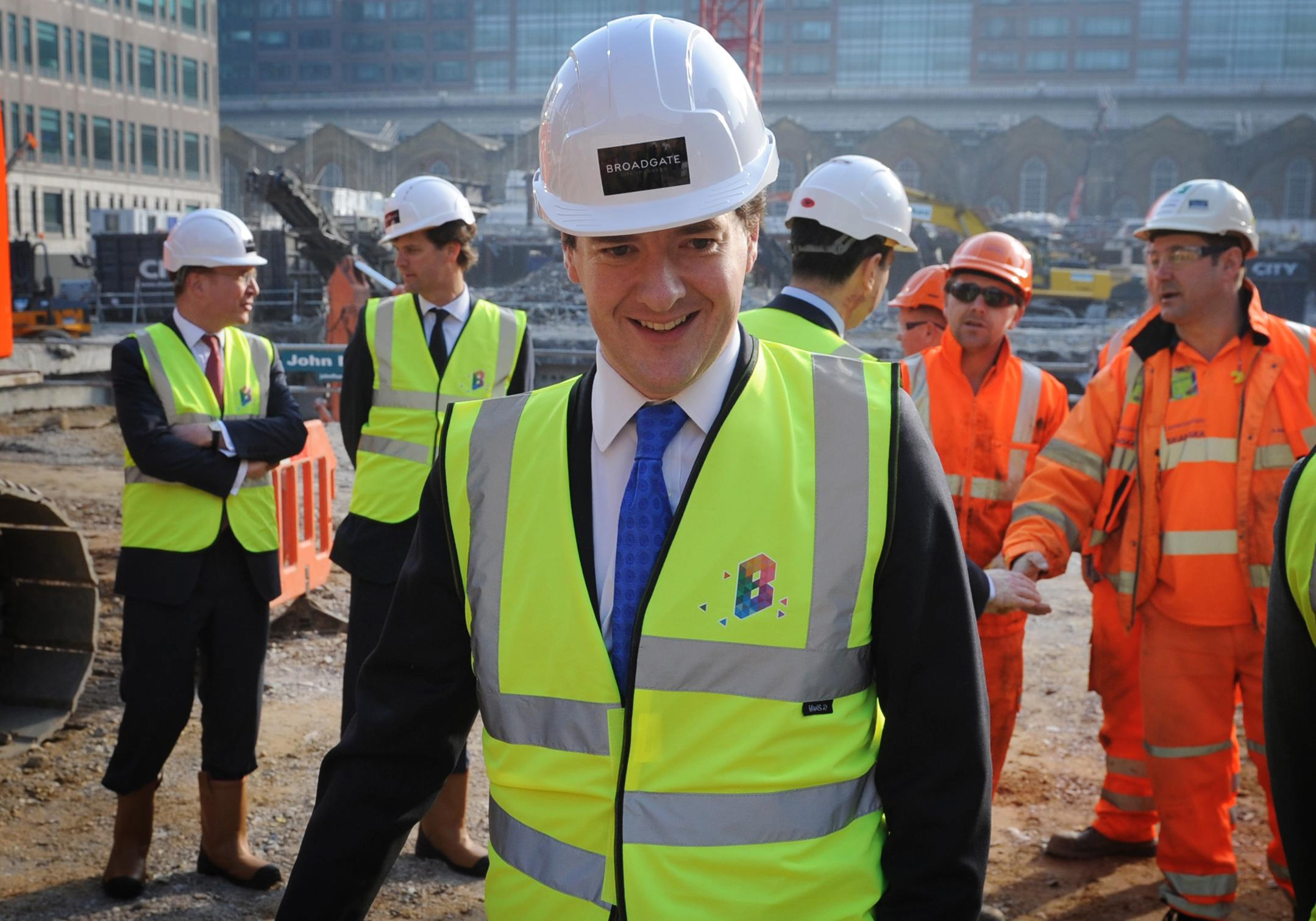Scrapping tax relief for buy-to-let investors and tackling high land prices should be priorities in this week’s budget if the chancellor wants to avoid a crash in 2025
Last year, the economist Charles Goodhart predicted that the next financial crisis will hit in 2025 due to another property bubble and some clever financial engineering. Evidence to date suggests that politicians have limited interest in stopping booms and busts. But there are reasons to be cautiously optimistic that George Osborne could be the chancellor to ruin Goodhart’s prediction.
During his Mansion House speech last month, the chancellor stated that Britain neither invests enough nor builds enough. No doubt, the chancellor is currently in discussions with Treasury officials analysing for next week’s budget which parts of the tax system are acting as a barrier to investment, and what might be done to build more houses.
Tax System
Where capital is invested matters for future growth and prosperity. For example, the enterprise investment scheme has been critical in raising investment levels in many innovative businesses from around £100m in 1997 to over £1.3bn in 2014. This is central to creating jobs and increasing productivity. But when excess liquidity flows into existing financial assets – particularly housing – house prices boom, inevitably leading to a financial crises.
According to Bank of England estimates, of the £144bn of mortgages raised in 2014 to purchase houses, £125bn was used to acquire existing assets and only £19bn for new builds. As the supply of new houses has not kept up with demand, the increasing amount of capital acquiring existing assets has pushed the price of houses up.
The purchase of housing services is generally obligatory with Britain’s renters and first-time buyers having to pay and save an ever-higher proportion of their incomes to live somewhere. This, in turn, reduces consumption and lowers the growth rate. Moreover, the acquisition of existing assets does very little for jobs and crucially reduces productivity growth by increasing rental costs for firms.
The benefit to home owners from rising house prices is limited unless the householder decides to sell up and live somewhere else. But investors in housing have generated outstanding annualised returns of 16.2 per cent pa since 1996 according to the Wrigglesworth Consultancy, compared to 6.9 per cent for gilts and 6.5 per cent for UK equities. Buy-to-let mortgages now account for a quarter of all new house purchases. As demand for this asset grows, it is quite likely to have an ever-increasing impact on supporting rising house prices.
Curiously, the state encourages investors into buy-to-let assets through mortgage tax relief. According to HMRC, £6.3bn of rental income in 2012-13 was deducted against tax derived from mortgage tax relief. Owner occupiers no longer have that option, and it is not possible to receive tax relief by borrowing to invest in bonds or equities. Furthermore, buy-to-let activity is not classed as business activity, but as investment activity. Placing buy-to-let on an equal footing with other investments would be a sensible policy to help stabilise house prices and might stimulate capital to be deployed in more productive ways. It would also increase tax revenues by around £2bn per year.
Building more houses
But for Osborne to really stop the 2025 financial crisis there will need to be a massive increase in house construction. Although politicians on all sides agree that Britain is not building enough, the election debate does not bode well for the future. Wild forecasts from all parties on who could build the most houses, were reminiscent of the behaviour of provincial governors under Mao during the Great Leap Forward. In order to please the party chairman, exaggeration became the most important driver of iron production forecasts. Iron output in 1964 was the same as in 1958.
The chancellor needs to ensure the land market operates in an efficient way for the benefit of society and not for the few. Landowners profit from the productive activity of others as values rise, but these unearned profits are not taxed. This makes land a very good investment opportunity so there is little reason to part with it at a low price to build houses on.
Although it is unlikely any conservative chancellor would follow Winston Churchill in supporting a land value tax, Osborne could provide city region authorities ultimate control over land use as part of his devolution programme, and make some small tweaks to the Land Compensation Act permitting the acquisition of brownfield land without reflecting future development value. As high land prices remain the biggest impediment to house building, such a designation could kick start a new wave of construction.
For the chancellor to prove Goodhart wrong, he should end the subsidy for buy-to-let investment which will reduce demand for existing assets. But he crucially needs to get Britain building again by ensuring that markets are structured so they benefit all of society not just landowners.
The image was taken by Stefan Rousseau of PA Wire, published under CC BY-NC-ND 2.0
